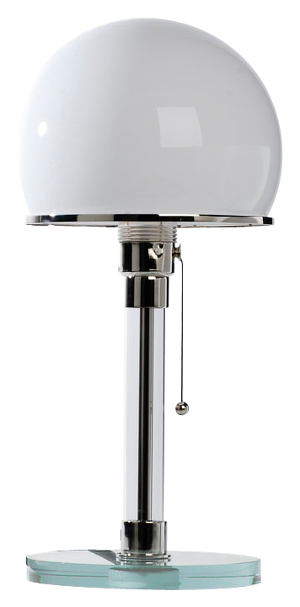
bauhaus music weekend 2023
About the bauhaus music weekend
Bauhaus and music – a combination only few have fully appreciated. And yet, the first guest event at the Bauhaus in Weimar in 1919 was dedicated to music, and many more musical performances followed. When the school opened its doors to the public for the first time in 1923, music played a significant role. Famous composers like Igor Stravinsky, Paul Hindemith and Ferrucio Busoni were invited to the five-day Bauhaus Week in Weimar in 1923 to witness the performance of their works which opened the exhibition.
With its interdisciplinary research project bauhaus music, the Bauhaus-Archiv / Museum für Gestaltung has been exploring the relationship between the Bauhaus and music since 2021. On 22–24 September 2023, it presented its initial findings during the bauhaus music weekend 2023. To mark the 100th anniversary of the Bauhaus Week, a series of concerts, talks, guided tours and a workshop concert revealed how music influenced the atmosphere of the Bauhaus and how it became a normal part of everyday life among Bauhaus students and staff. The programme focused on the musical pieces performed in 1923: Stravinsky’s The Soldier’s Tale, Hindemith’s The Life of Mary and Busoni’s Work for Piano. The event also featured music by members of the Bauhaus, e.g. Stefan Wolpe and other prominent musical figures who visited the school, such as Kurt Weill, Paul Arma and the American composer Ruth Crawford Seeger.
The bauhaus music weekend 2023, directed by Michal Friedländer, Karl-Heinz Steffens and Kai Hinrich Müller in cooperation with the Neuer Musikverein Berlin, was made possible with special funding by the Berlin Senate Department for Culture and Social Cohesion. It marks the start of a three-year event series on the topic of the Bauhaus and music.
Programme
You can download the program booklet for the bauhaus music weekend here.
Artistic directors
The bauhaus music weekend 2023 was directed by Michal Friedländer, Karl-Heinz Steffens and Kai Hinrich Müller in cooperation with the Neuer Musikverein Berlin.
The pianist Michal Friedländer made her debut at Carnegie Hall at age 15 with a piano trio at the invitation of Isaac Stern. Chamber music and accompaniment have remained the focus of her multifaceted career ever since. Born in Geneva and raised in Israel, she studied at the Rubin Academy in Jerusalem under Benjamin Oren and Ilona Vince-Kraus. She later completed her studies under Patricia Zander at the New England Conservatory in Boston. Michal Friedländer has regularly performed as a soloist with orchestras in Europe and Israel.
Karl-Heinz Steffens received his musical training at the Stuttgart University of Music. In 2000 he was chosen as the solo clarinettist of the Berlin Philharmonic Orchestra. In 2008 Steffens made his official debut as conductor of the Staatsoper Unter den Linden. In December 2009 he was appointed head conductor of the German Philharmonic Orchestra of Rhineland-Palatinate. Under his direction, the orchestra received numerous awards, including the ECHO Klassik for Best Orchestra. In 2016 he was appointed musical director of the Norwegian National Opera in Oslo. From 2019 to 2022 he served as musical director of the Prague State Opera. In 2019 Steffens was presented with the Federal Cross of Merit of the Federal Republic of Germany for his outstanding musical achievements.
PD Dr Kai Hinrich Müller is a member of the Institute of Historical Musicology at the University of Music and Dance in Cologne. He received numerous fellowships, earned his PhD in 2013, followed by his habilitation in 2022. As a recipient of the Thomas Mann Fellowship, he will take up residence at the Thomas Mann House in Los Angeles in late 2023/early 2024. He heads various research projects in Germany and abroad, including Musica non grata and bauhaus music. He has served as artistic director of the Terezín Summer Academy at the former Theresienstadt concentration camp since 2021.
Venues
the temporary bauhaus-archiv
The temporary bauhaus-archiv is located in Haus Hardenberg, a historical landmark constructed in 1955 - 1956 by the architect Paul Schwebes. Today, it is considered one of the most extraordinary office buildings of modernist architecture built in post-war West Berlin. The temporary bauhaus-archiv is currently operating as an interim venue and project space while the Bauhaus-Archiv / Museum für Gestaltung is being renovated and expanded. It offers a varied programme of exhibitions and educational events on the collection of the Bauhaus-Archiv and current design, architectural and social issues. As we await the grand opening of the new museum, we remain engaged in dialogue with our audience and regularly test new formats for our future activities.
Meistersaal
The Meistersaal is the centrepiece of the Greater Berlin Builders’ Association building, constructed in 1913 at Köthener Straße 38. The name “Meistersaal” (Master Hall) refers to the ceremony held there when finishing tradesmen received their master craftsman certificates. In the 1920s the Meistersaal assumed greater artistic significance. George Grosz’s gallery opened for business on the ground floor, along with the Malik Verlag, which hosted a reading by Kurt Tucholsky in the Meistersaal in 1921. Today, the location is legendary, not least of all for Hansa Studio 2 which operated there in the 1970s. This is where David Bowie wrote “Heroes” and U2, Iggy Pop, Depeche Mode and Nick Cave produced their music.
